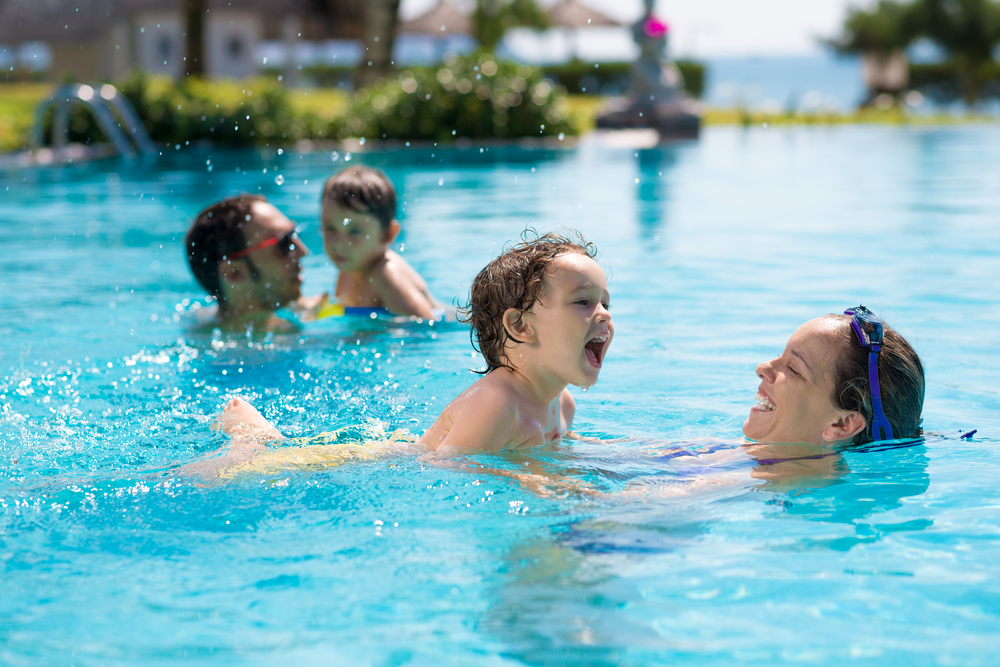How Lifeguards Can Partner with Parents in Pool Safety

 As a lifeguard, it’s your job to keep pool patrons safe and make sure everyone respects the rules while enjoying themselves. Many of your swimmers will be kids who are ready for some high-octane summer fun. While you definitely don’t want to discourage that, it’s important to realize that as beginning and excitable swimmers, children can be some of your more difficult clients to keep safe. This is where parents come in. You’ll need their help in managing their kids so that you aren’t filling the role of babysitter on top of your lifeguarding duties.
As a lifeguard, it’s your job to keep pool patrons safe and make sure everyone respects the rules while enjoying themselves. Many of your swimmers will be kids who are ready for some high-octane summer fun. While you definitely don’t want to discourage that, it’s important to realize that as beginning and excitable swimmers, children can be some of your more difficult clients to keep safe. This is where parents come in. You’ll need their help in managing their kids so that you aren’t filling the role of babysitter on top of your lifeguarding duties.
So how can you, as a lifeguard, partner with parents at the pool to ensure everyone is safe?
Encourage parents to register kids for swim lessons.
This may seem obvious, but it’s a lot easier to keep the pool safe when everyone knows how to swim. That’s where parents come in. You can make it easy for them to register their kids for swim lessons by posting available lessons on a bulletin board. Additionally, if you’re noticing that a young swimmer is having trouble, seek out the child’s parents and let them know that lessons are a great way for children to gain confidence in the water. If you’ll be offering the instruction yourself, be sure to mention that. This may be just the nudge parents need to get their kids into lessons.
Make sure parents know the pool rules.
While you may have already explained the pool rules to your young swimmers, be sure to explain them to parents, too. That way, parents can be your partners in enforcing rules to their kids and making sure they understand them. For example, remind parents that eating is only allowed in designated areas; glass is never allowed in the pool area; and, of course, there’s no running on the pool deck.
You may also need to remind parents that swimmers need to pass a swim test before swimming in the deep end. Many pools require swimmers to swim a certain distance and tread water for a prescribed time limit. Let parents know the requirements at your pool and give them tips on how they can best prepare their children to pass the swim test with flying colors.
Clarify that lifeguards are not there to babysit.
Making sure kids stay hydrated or have snacks isn’t the responsibility of the lifeguard. Neither is it your job to work out problems between quarreling siblings or give a pep talk to a youngster having a bad day. If parents aren’t available to respond to these and similar needs, it can be a distraction to you and your coworkers when you’re supposed to be scanning or attending to your other responsibilities. If you find that some children routinely make unreasonable demands on your time, it may be time to have a conversation with their parents. Gently let these parents know that their kids’ issues are interfering with your efforts to keep swimmers safe.
Remind parents about proper supervision for young swimmers.
A child can drown in less than two minutes in two inches of water. While most parents will stick close to their non-swimming kids, you may need to remind some parents that leaving very young kids unattended can be dangerous, even in baby pools. Make sure parents remain within arm’s reach of non-swimming children and of kids who are still getting the hang of swimming. If your pool has age requirements for parental supervision, be sure to reinforce that information with parents.
When parents are attentive, you can devote more of your attention to scanning, rather than monitoring children who require your one-on-one attention in the pool.
Take time to get to know the parents at your pool.
Becoming familiar with the patrons at your pool is a good move, regardless of whether they’re parents, young swimmers, or adults. Having a friendly relationship with parents can help you be seen as an ally, rather than the “mean” enforcer. When parents know and respect you, they’ll be more apt to make sure their kids don’t make your job more difficult.
Need some ideas about how to approach parents? Check out our tips on how to speak up at the pool.
With parents on board as your partners at the pool, you can work as a team to avoid accidents and emergencies so that everyone can focus on the important thing: having fun.
